Interview: Cid Bullens on THE CIVILITY OF ALBERT CASHIER at The Colony Theatre
The Colony Theatre is located at 555 N. Third Street (between Cyprus and Magnolia) in Burbank, 91502.
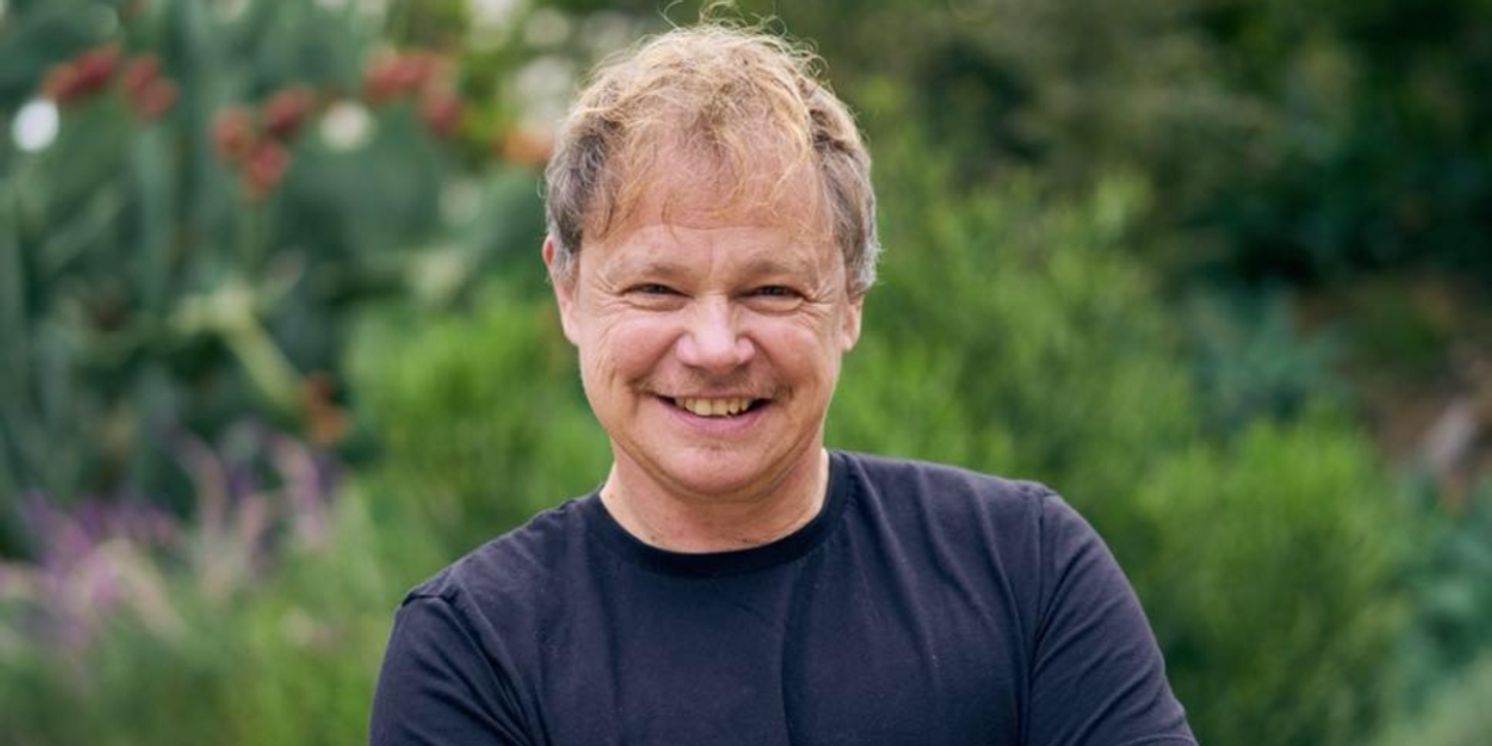
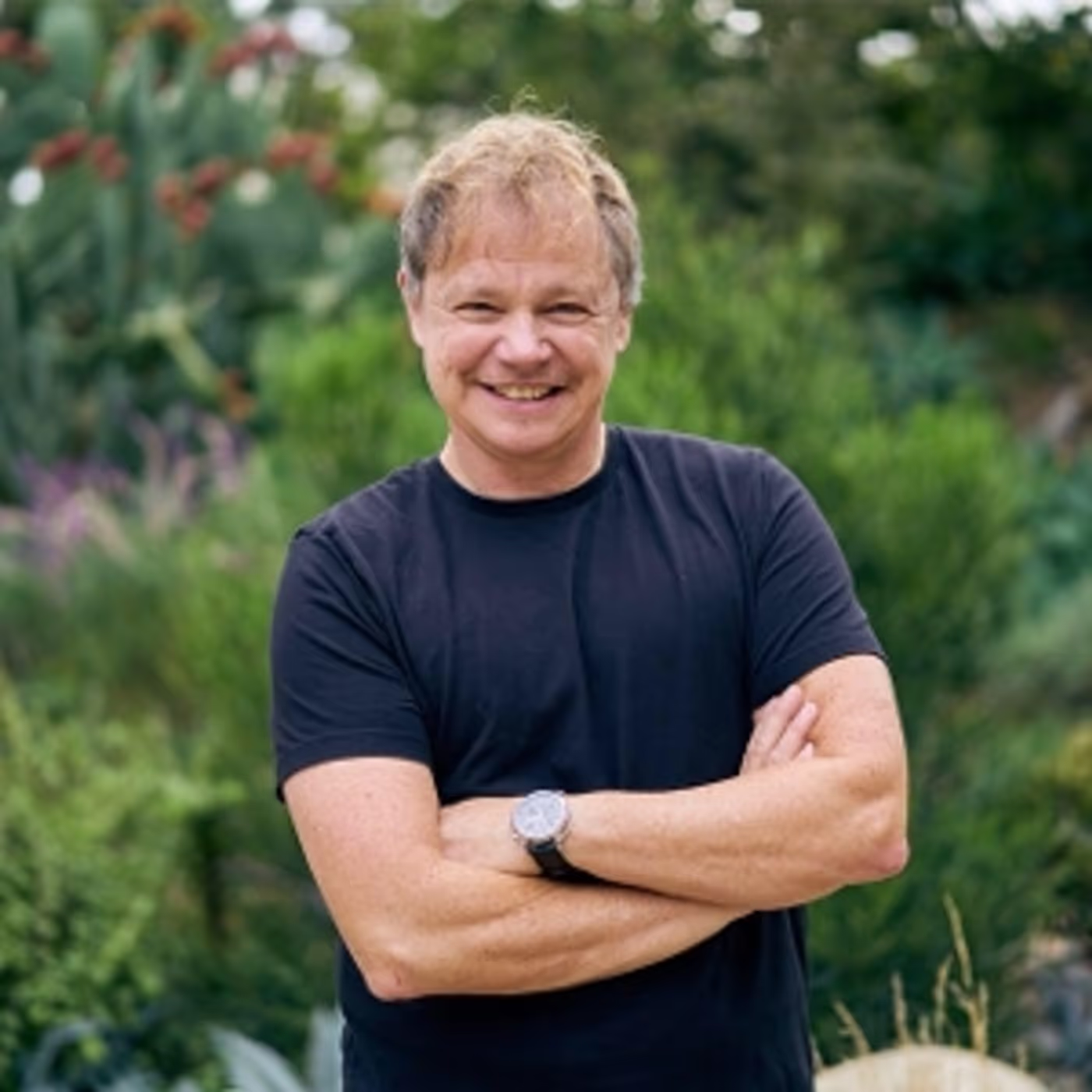
The Colony Theatre in association with producers Christine Russell (Beautiful: The Carole King Musical, Head Over Heels), Robert Ulrich and Jay Paul Deratany are presenting the Reel Red Entertainment production of The Civility of Albert Cashier, a new musical about notable queer history figure Albert Cashier, born Jennie Hodgers, who served alongside the men of the 95th Illinois Volunteer Infantry with distinction throughout some of the fiercest fighting of the Civil War. While not alone as a woman serving on the battlefield during the war, Cashier never revealed himself as anyone other than a man dedicated to serving his country on the battlefields during its greatest time of need. He was recognized as such by his comrades in arms and those surrounding him and retained his identity as a man throughout his later life. Transgender musician and actor Cidny Bullens (Pictured) portrays the older Cashier in the play with Dani Shay taking on the role of the younger Cashier. I decided to speak with Cid about his own road to self-discovery and what led him to the role of a transgender man.
Hi Cid. Thanks for speaking with me today. Let’s start by talking about your own life as, in your own words, a “Cosmic Rock Star.” How young were you when you knew your place was in the music industry?
I graduated from The American Academy of Dramatic Arts just over 50 years ago. I loved everything about acting and participated in every staged production I could during my high school years (even creating a few). Of course, music was always a part of my plan--musicals were my favorite. Growing up in a very small town, the opportunities were limited, but I made the most of it.
When I graduated high school though, all I wanted was to immediately hit the road as a musician and become a rock star. My mother, who was formidable, said "No way! You are going to go to at least two years of school." (I hadn't applied to any colleges at all, knowing that my destiny was rock 'n roll.) So off I went to New York City and the Academy. I loved it.
.jpg?format=auto&width=1400)
After I graduated, I auditioned for everything I could—but apparently, I looked very young, but I was old tall to play a kid, not feminine enough to play an ingenue, and not "quirky" enough to be a character actor. I finally landed a job on Broadway, no less, as the guitar player in the pit (who could "play like a man," with a great young bassist named Will Lee), with three lines, in the ill-fated production of "Lysistrata" with Melina Mercouri (of the film Never on Sunday fame). And that was it. I finally saw the writing on the wall and left for Los Angeles in 1973 to find my fame and fortune in music.
How did you get a foothold into such a competitive industry?
All my early opportunities in music seemed to drop in my lap out of nowhere. I had left New York and was sleeping on a friend of a friend’s couch in West Los Angeles when, by chance, I met the late hit pop songwriter and producer Bob Crewe (Four Seasons, Mitch Ryder) in the summer of 1973. Bob introduced me to the world of recording and the music business elite. I also became what I call Bob’s “gopher/protégé,” living and working with him every day and singing backup vocals on his records.
My next “God Shot” was even more unlikely. In September of 1974, I crashed a press party for Neil Sedaka at Cherokee Studios in Hollywood, hosted by Neil’s new label, Rocket Records. I knew Elton John was going to be there and I was a big fan. I snuck into Studio A, where the party was happening, and before I knew it, Elton was introducing himself to me. I was in rehearsals with him two days later as a backup singer for the Rock of the Westies tour.
Within those two days, I had to decide between going on tour with Elton John and being in the house band of The Rolling Thunder Revue with Bob Dylan. Through songwriter and raconteur Bob Neuwirth, I was part of the first seeds of that idea in July of 1974 in Greenwich Village. It was a very heady time for an unknown kid from rural Massachusetts.
.jpg?format=auto&width=1400)
Tell me about your book Trans Electric. Is it an autobiography? What years of your life does it cover?
TransElectric: My Life as a Cosmic Rock Star is a memoir. It starts in 1973, when I arrived in Los Angeles, goes through my unexpected early career, my subsequent solo career, my marriage and life as a mother and bereaved parent, my re-emergence into music, and ends in 2016 with the premiere my one person show Somewhere Between: Not an Ordinary Life. Of course, I go back in time, throughout the book, to my childhood and relevant events that shaped my life.
Like Albert Cashier in the play hiding his physical reality to live as a man to serve during the Civil War, when did you first know you were a man in a woman’s body?
I have known that I was in the wrong physical body since I was three.
What was the most difficult thing for you personally about living as a young girl knowing you were in the wrong body?
I just could not understand why I couldn’t be who I knew myself to be. Why I couldn’t wear the clothes and shoes that my older brother had. Why it was expected of me to act a certain way, sit a certain way, be a certain way that was so alien to me. I fought it every single day. Don’t forget I was a young child in the ‘50s and ‘60s. It wasn’t until the late ‘60s that the culture started to allow girls to shed that expected feminine look, and boys to have long hair.
There is a line in The Civility of Albert Cashier toward the end when his soldier buddy says to Young Albert, “You’ve been fighting your whole life. Not everything has to be a fight.” Every single time I hear that line, it hits me hard. I have been fighting my whole life, just to be who I am. I believe those who are marginalized in any way in this world know that to be true.
Were you in rock bands as a woman during the years before transitioning? Or were you already presenting yourself as a man?
I had a solo career as a singer/songwriter and as a recording artist from 1979 through the early 80s and then again from 1999 to the present. I was nominated for a Grammy as part of the Grease movie soundtrack in 1978 (I sang “Freddy My Love,” “Raining of Prom Night,” and “Mooning”) and then nominated in 1979 for my own single “Survivor” as Best Rock Performance-Female.
I always “presented” as me. I dressed the way I wanted to dress - on stage and off. In the early days of my career, I was called “androgynous” by the press. Also, I was dubbed “the female Mick Jagger.” I was also one of the first women solo artists (if not the first) in rock to play electric guitar on stage. My stage presence and antics were—let’s say—unusual. I was not demure!
One of the major reasons I stepped away from the music business in 1981 was because my record company insisted that I be more feminine on stage. They wanted me to wear “dangly earrings and tank tops.” I said no. And that was the end of my career at that point.
Tell me how Elton John played such an important role model in your life.
Oh my gosh—it’s hard to convey what Elton means to me. I say the best part of the story, for me, is that we are still friends nearly fifty years after we met that fateful night at Cherokee Studios in Hollywood. I adore Elton. He has been there for me time and time again, both personally and professionally. But I don’t just love him because he has been there for me. I love him because of who he is. I think we saw something familiar in each other all those years ago. I have had the opportunity to get to know him behind and beyond the spotlight. You won’t find a more generous and heart-centered person.
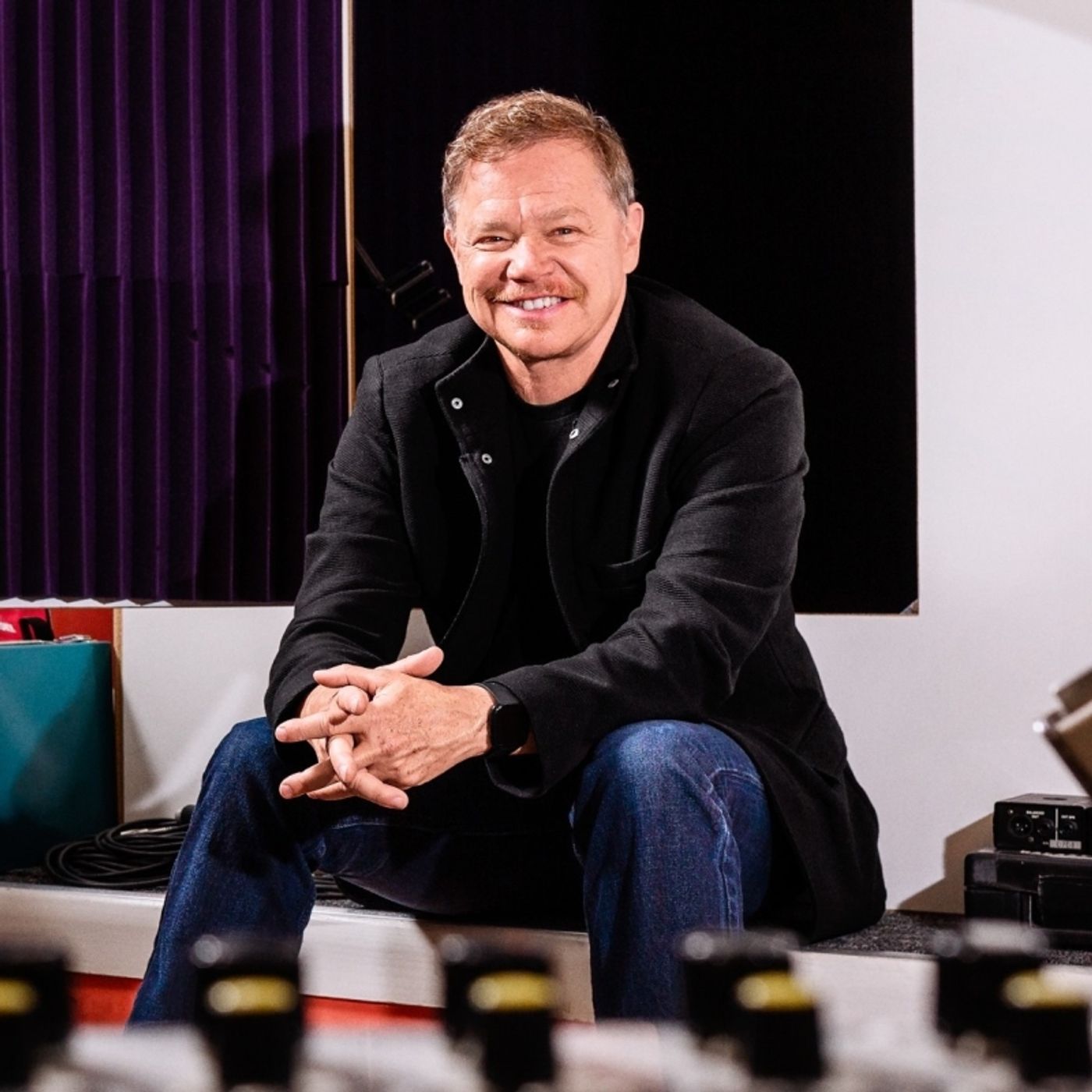
What led to your decision to transition to male in 2011? And how did your family react?
I got a call from a younger friend who had moved out of town a couple of years earlier. He told me he had transitioned and was now “living his life as a man.” It completely blew me away. I asked him every question I could think of about his transition experience. Suddenly, all that I had buried so deep in my being about who I knew myself to be, exploded within me. That was it. I could not go back. It was like a tsunami of possibility—even at my advanced age—swept all my other existing reality away.
I did not tell my whole family right away. I told my daughter Reid, who by then was married and had two children of her own. I told my former husband, Dan Crewe (yes, the younger brother of Bob Crewe). They were both very supportive and urged me to explore the possibilities. I slowly told my siblings about my plans to come out publicly as transgender. They were not altogether happy or convinced that I should transition. I was after all a grandmother, a public figure both in music and locally in Maine as an advocate for children’s cancer research and then for LGBTQIA rights.
But as I struggled with my own decision at times, my entire family came around to be not only supportive, but protective, and actively involved in advocating for transgender awareness. This was the same for my friends. Unlike many trans folks, I have been extremely fortunate to have so much support.
How did you find out about The Civility of Albert Cashier and get cast?
I received a message from my pal singer/songwriter Joe Stevens in December of 2019 about reading a part for a musical, for which he had co-written the music, for a Broadway producers showcase in NYC to be read in February 2020. That was the first I heard about "The Civility of Albert Cashier.” It's the true story of a female assigned at birth who fought in the Civil War as a man without ever being detected until old age and the consequences of the later discovery. The two lead characters are the young Albert and the old Albert. (You know which one I was asked to read.) I was thrilled and nervous. But once I got into the script and the music, I was completely enraptured.
I sat down and watched every episode of Ken Burns’ Civil War. I read as much as I could about Albert Cashier (and other females who fought in the Civil War; there isn't much info.) So, we did the reading on February 1, 2020—full cast, full audience of theatre producers and others. Then the pandemic hit. And that was the end of it—for me at least, I thought. The writers went on to re-work and re-showcase the production once the world opened again. I was happy to know that "Albert" wasn't completely gone. Back to Joe and his message: "Hey Cid, just when we thought Albert might be dead, he rises again. Would you miraculously be free mid-July thru Sept for a six-week run in LA?" WHAAAAT!!!!
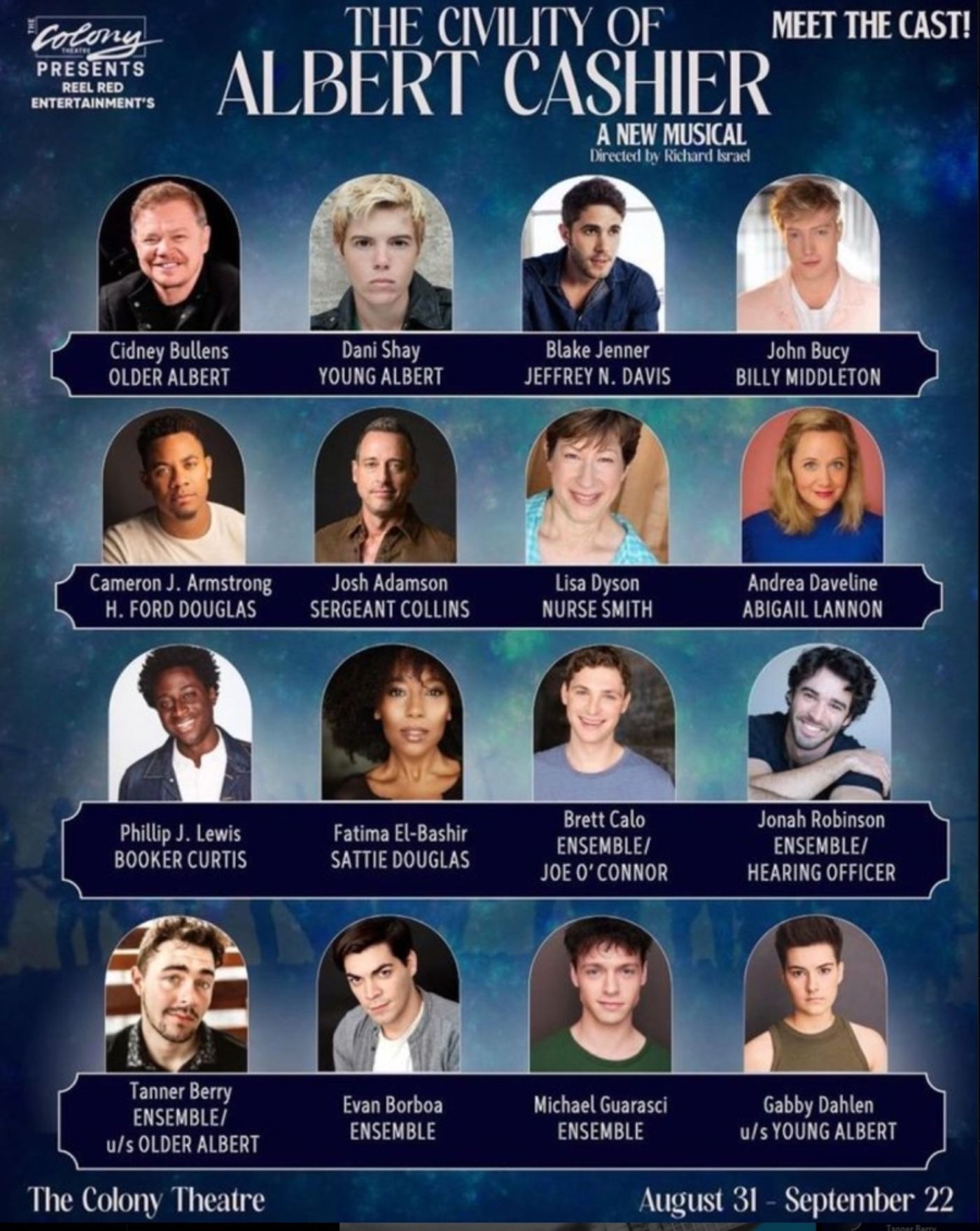
Is this the first play in which you appear as someone other than yourself?
I come full circle in my life, as many things seem to do as we age. Yes, I've been on stage a thousand times in my life. Yes, I wrote and performed my one person show (which I had to fully memorize word for word as I wrote it). Yes, I even wrote a musical called "Islands." But this will be a brand-new experience for me. It’s a bit…no, it’s terrifying! But also, incredibly exciting for me.
You mentioned in his later life, there were consequences for Albert passing as a man. Can you tell me about that?
He was living quietly and happily in Saunemin, Illinois, until an unfortunate incident landed him in the Soldiers’ and Sailors’ home where he was discovered. Albert was investigated and tried for impersonating a soldier and stealing his pension from the United States government. He never went home to Saunemin again.
Had you ever heard about Albert Cashier prior to being cast?
No.
Neither had I until I started doing research for this interview. What intrigues you the most about him in the play?
Albert was so brave and determined and committed to the cause. I well up even saying this now. His character and personhood are so well portrayed by the writing of Jay Paul Deratany, the direction of Richard Israel, and of course, Dani Shay, who plays Young Albert.
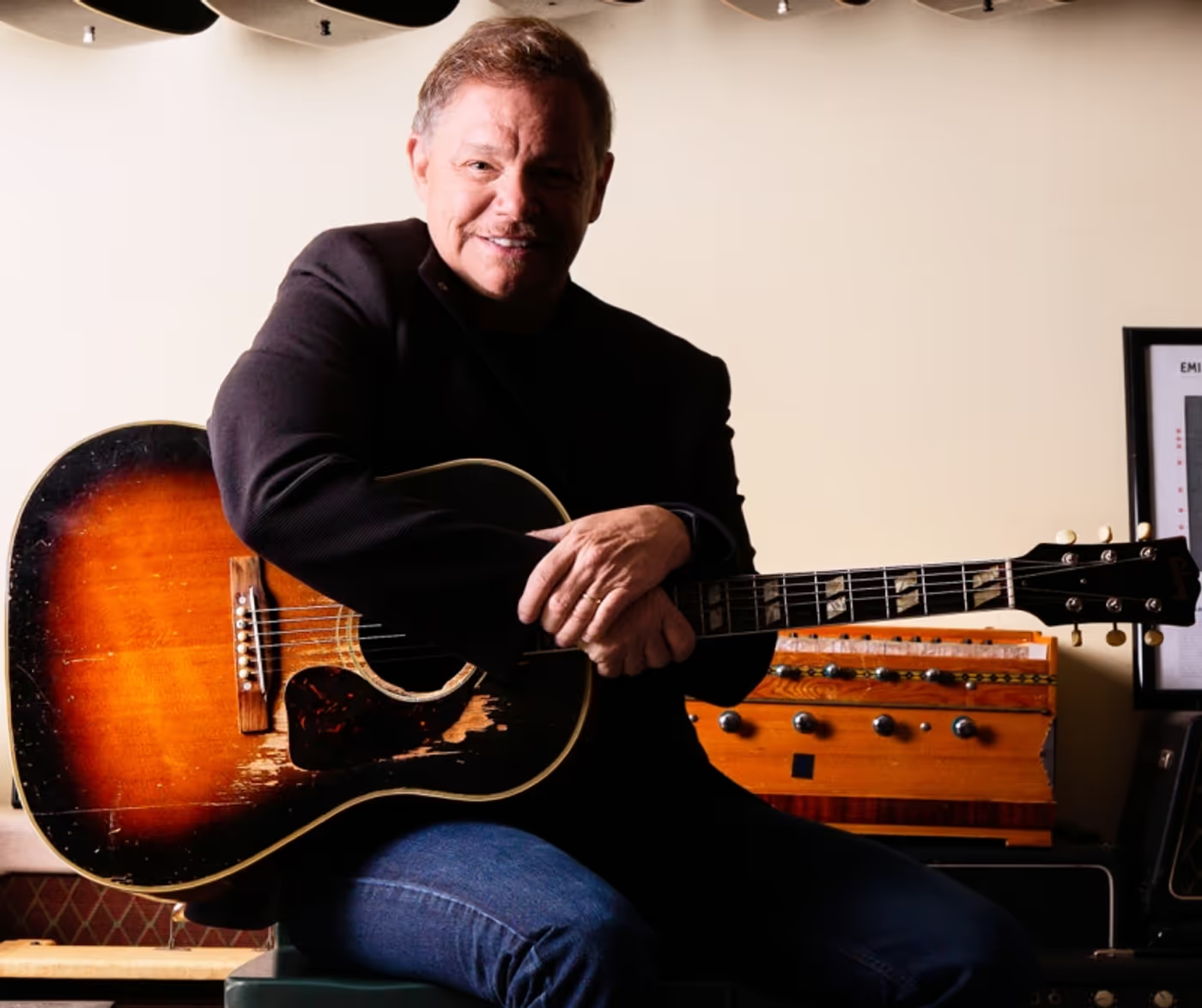
Tell me about the themes or storylines in the play with which you identify, or which you feel are universal.
Mostly having to (or feeling I had to) hide my true self for most of my life. The Civility of Albert Cashier masterfully, in my opinion, without sentimentality, weaves the universal tenets of decency, dignity, and humanity throughout the play. I know that may sound lofty or even trite - but trust me, it’s true.
Anything else you want to share about yourself or the play?
I feel so honored to be a part of this important, timely, and timeless story. Plus, every single member of the cast and team involved with the production is not only whole-heartedly dedicated to this project and top tier in every way, but they are all wonderful people. I cannot believe my good fortune!
Thanks so much!
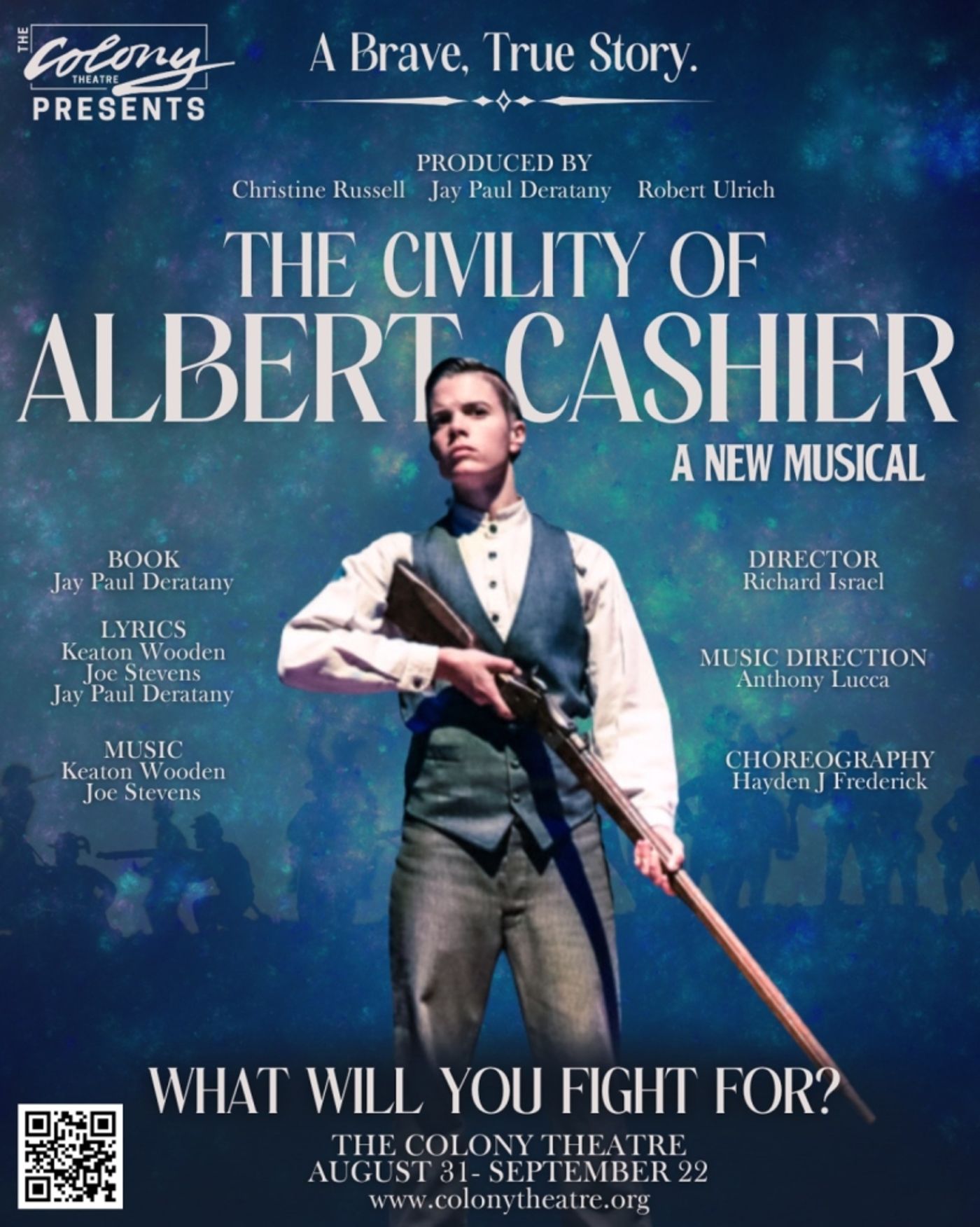
Winner of the 2018 Jeff Award for Best New Musical, the developmental production of The Civility of Albert Cashier with book by Jay Paul Deratany, music by Coyote Joe Stevens & Keaton Wooden and lyrics by Stevens, Wooden, and Deratany, is directed by Richard Israel and choreographed by Hayden J. Frederick, with Anthony Lucca and Anthony Zediker as musical directors. The cast features (in alphabetical order) Josh Adamson, Cameron J. Armstrong, Tanner Berry, Evan Borboa, John Bucy, Cid Bullens, Brett Calo, Gabrielle Dahlen, Andrea Daveline, Lisa Dyson, Fatima El-Bashir, Michael Guarasci, Blake Jenner, Phillip J. Lewis, Jonah Robinson, and Dani Shay.
Preview performances take place on Saturday, August 31, at 8pm; Sunday, September 1, at 3pm; Thursday, September 5, at 8pm; and Friday, September 6, at 8pm. Opening is set for Saturday, September 7, at 8pm. The regular performance schedule is Thursday, Friday, and Saturday at 8pm, and Sunday at 3pm, through September 22 only. There will be no performance on Friday 9/13 and an added performance on Saturday 9/14, at 2pm.
The admission price for previews is $45. For regular performances, admission is $55. A limited number of opening night seats are available for $75 (includes a post-performance reception). Tickets may be purchased online at www.colonytheatre.org The Colony Theatre is located at 555 N. Third Street (between Cyprus and Magnolia) in Burbank, 91502. Free onsite parking is available.
Videos

